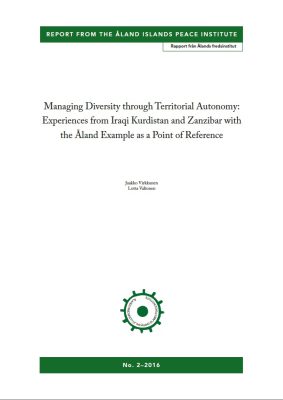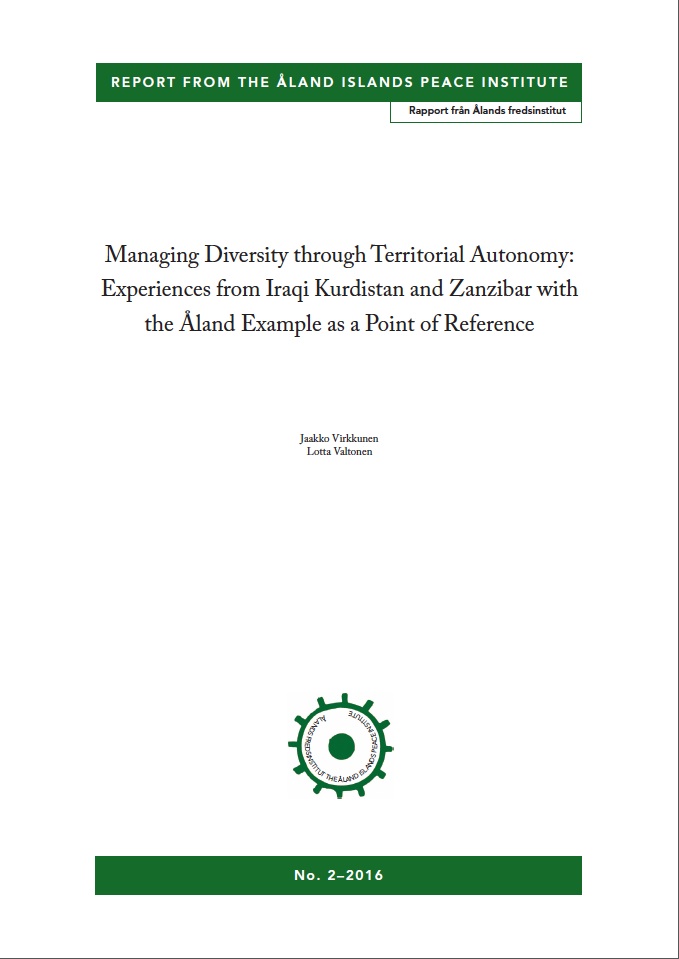Can autonomies be a tool for managing regional and national diversity? The experiences from the Ålands Islands show, that a functional and evolving autonomy arrangement can contribute to regional stability. However, autonomies and autonomy arrangements come in many different forms and shapes, and they are often formed in drastically different circumstances and for very varying reasons. In the first chapter of the report Jaakko Virkkunen has reviewed the experiences of Iraqi Kurdistan by using the Åland Islands (FIN) as a point of reference. The constitution from 2005 transformed Iraq into a federal system. Despite meeting many of the Kurdish demands for territorial self-governance, the constitution has also been criticized as a source of instability. One of the proposals to address the perceived weaknesses of the current system has been to introduce an autonomy similar to that of Åland Islands also for Iraqi Kurdistan. Virkkunen’s essay seeks to assess the viability of this proposal.
In the second chapter of the report another case study is presented. In this study, the experiences from Zanzibar appear to be vastly different. In her review of the autonomy of Zanzibar, Lotta Valtonen illustrates what kind of role internal politics have played in relevance to the status of the autonomy. After giving an insightful overview of the political history of the Zanzibari autonomy, Valtonen uses the Åland example to evaluate the strengths and weaknesses of the current framework for the autonomy arrangement in Zanzibar.
These two case studies are valuable contributions as they in new ways deepen our understanding of territorial autonomy, constitutional arrangements and the further exploration of the various usages of the Åland Example. It appears thus, that while autonomy may be a useful tool for managing diversity, it is no silver-bullet solution. Rather, as the case examples show, the arrangement should on the one hand reflect an acceptable balance of interests between the Capital and the periphery and on the other hand provide mechanisms for solving future grievances.




